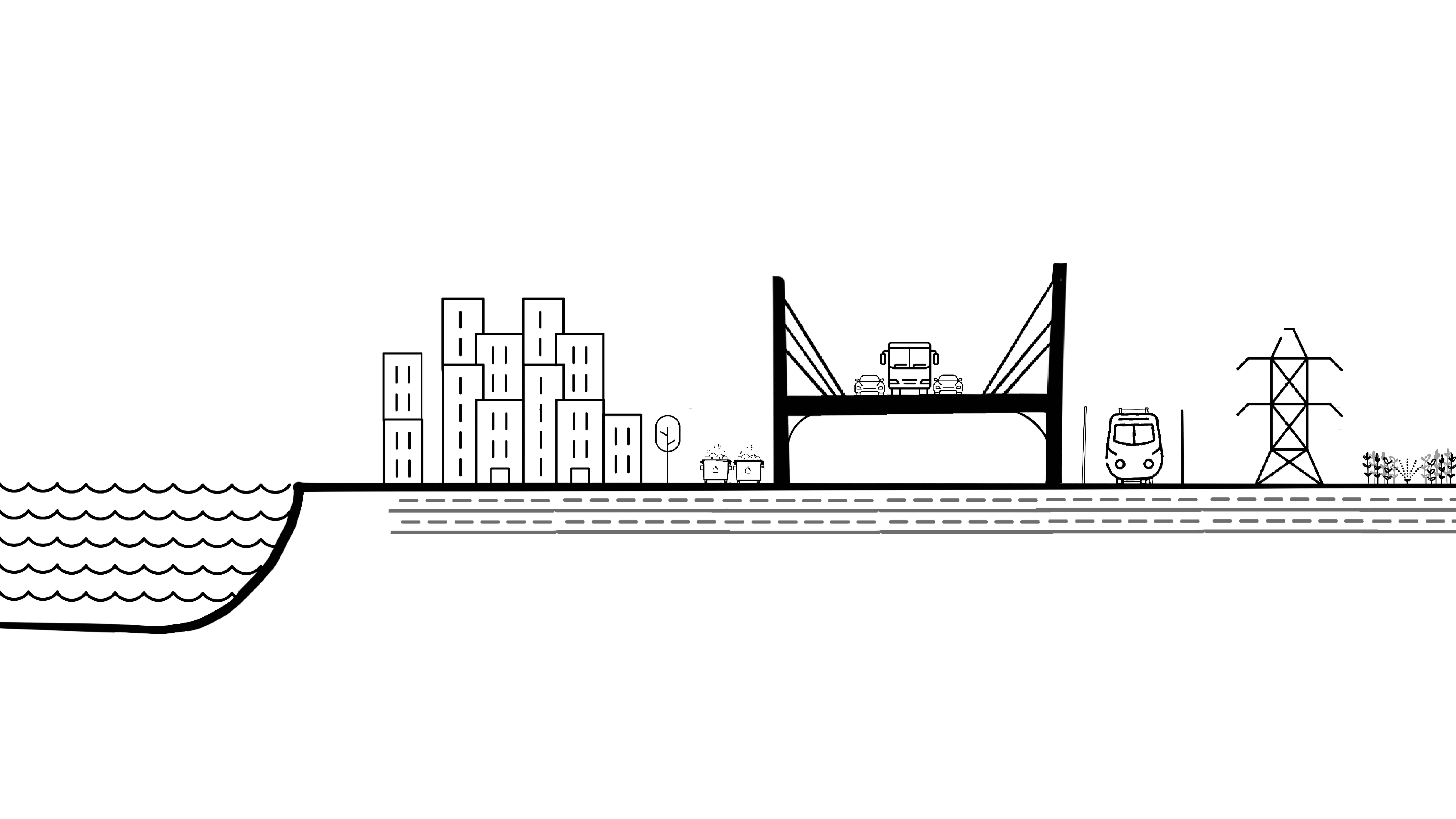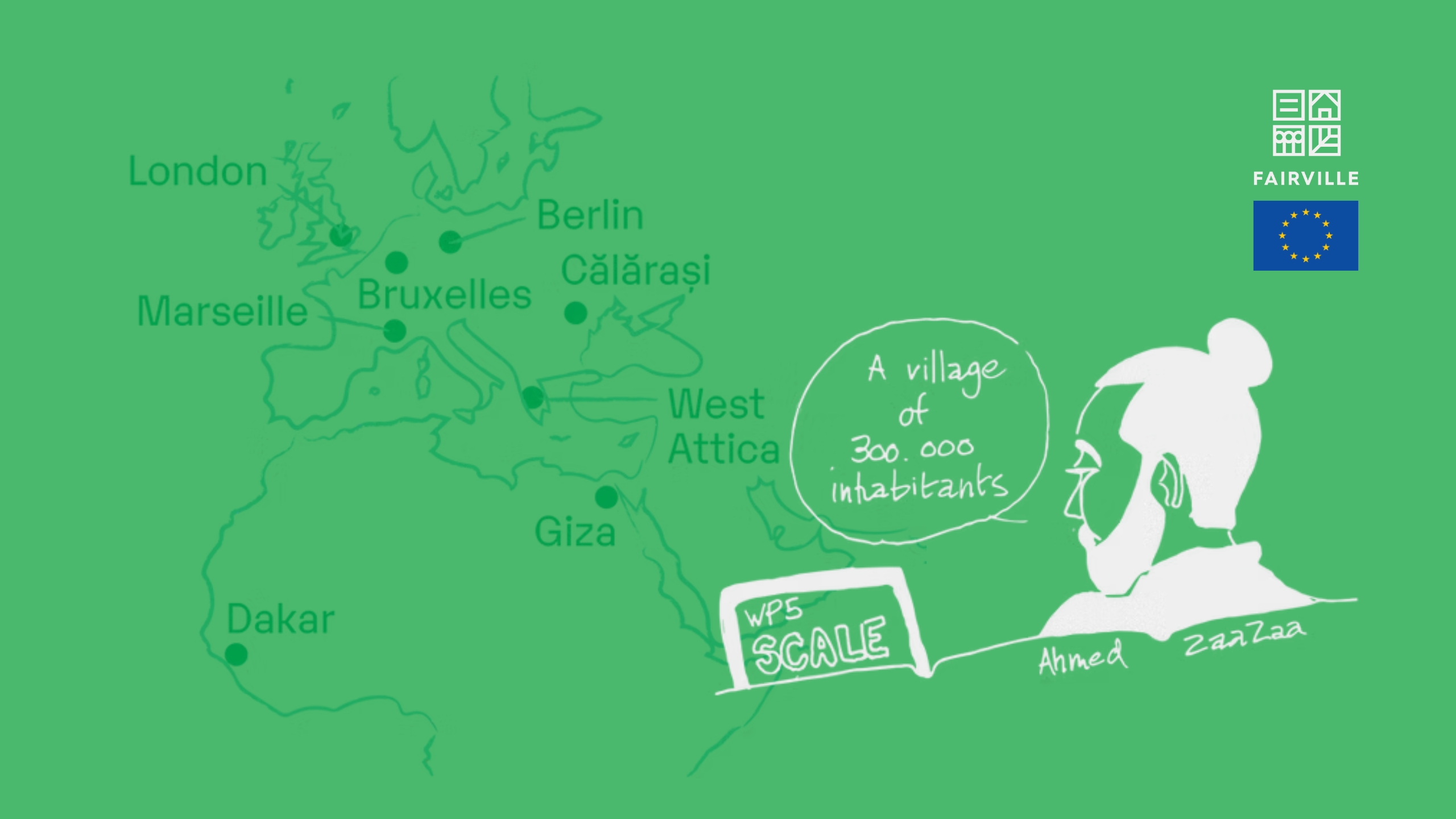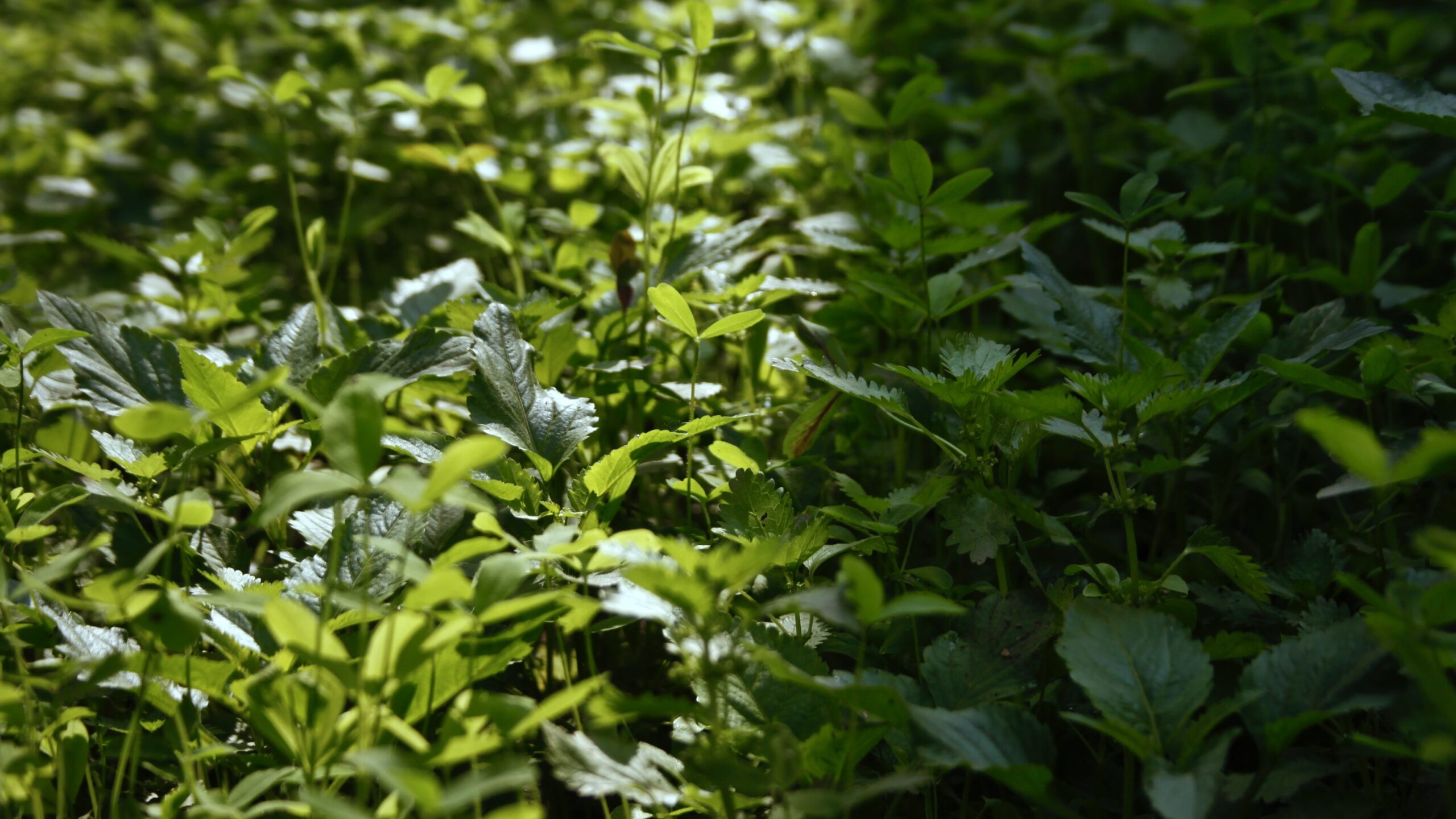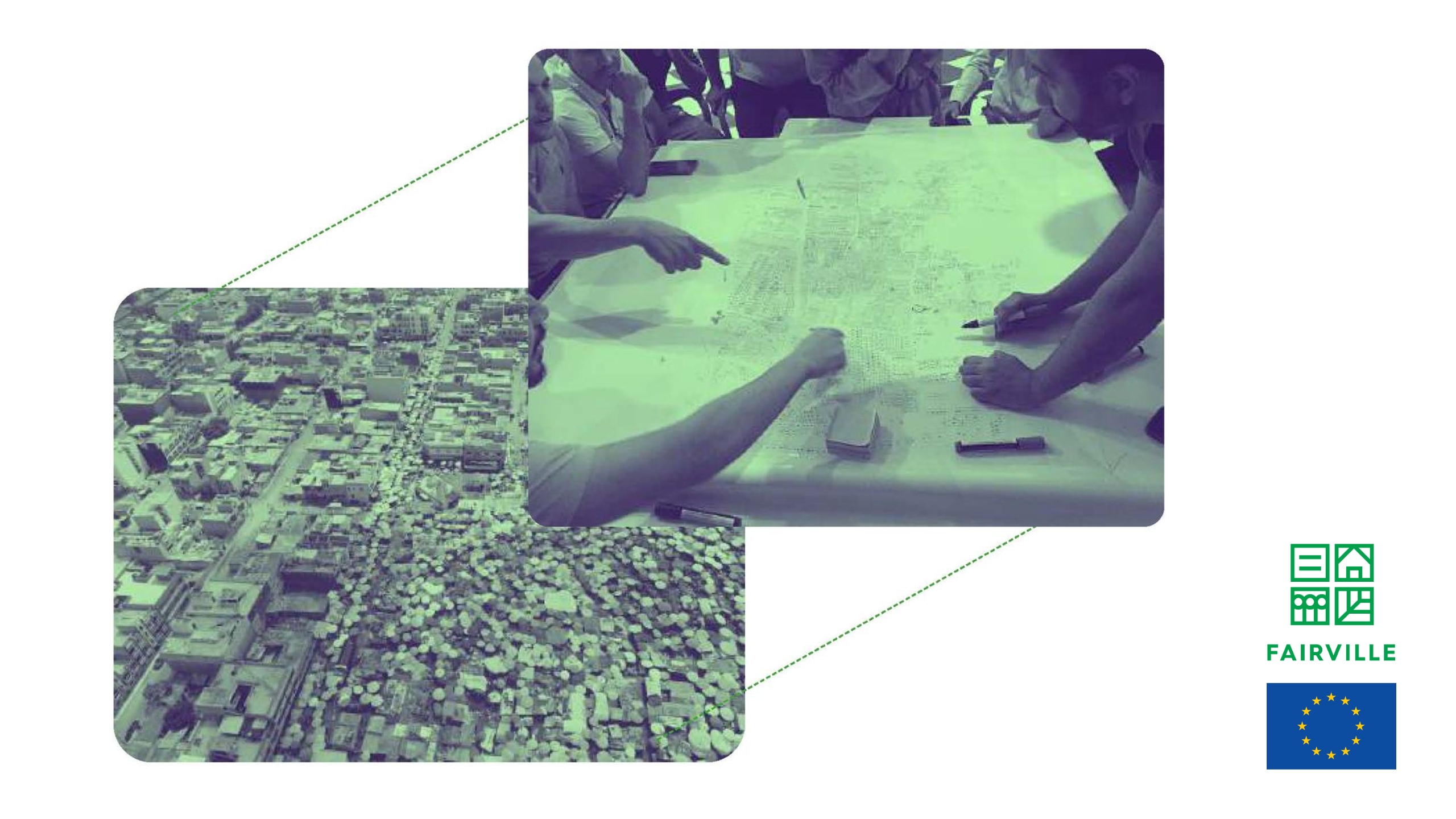The “Development of a Climate Resilience Instrument for the Urban Development Fund (UDF) in Egypt” Project was identified as a best practice to enhance climate resilience efforts in Global South cities at the World Urban Forum (WUF) 12 this year in Cairo during the session: Building Resilient Cities: Bridging the Climate Mitigation and Adaptation Gap!
Sharing the success story of piloting the instrument in Alexandria, the UDF promoted the city’s Local Resilience Action Plan (LRAP) as a key innovative planning tool that speaks to the #WUF 12 theme of ‘Local Actions for Sustainable Cities and Communities’. The Instrument’s digital Climate Adaptation Solutions Database was showcased as a technical resource for replication to bolster urban resilience!
Implemented by North South Consultants Exchange (NSCE) in cooperation with Witteveen+Bos, the project is part of GIZ Egypt its “Capacity Building through Urban Infrastructure Development” (CBUID) programme, jointly funded by the European Unionand the German Federal Ministry of Economic Cooperation and Development (BMZ).
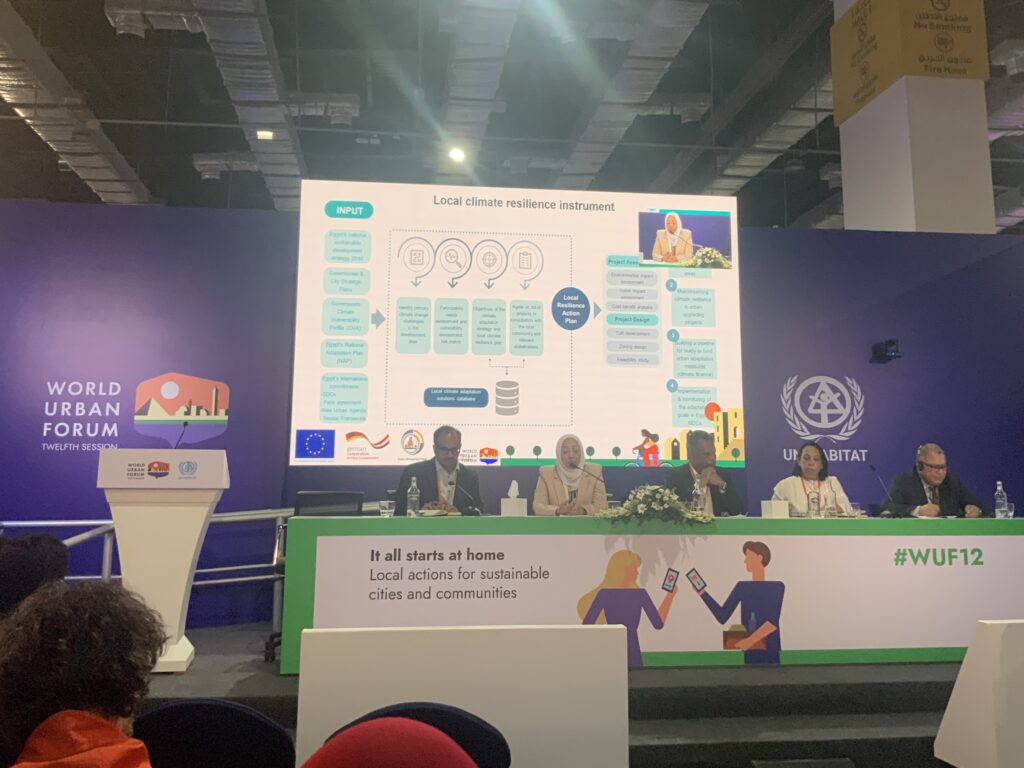
Project: Development of a Climate Resilience Instrument for the Urban Development Fund (UDF) in EgyptUnder the Forum its motto, ‘it all stars locally’, ‘it all starts now’, ‘it all starts together’, ‘it all starts at home’, this Voices from Cities’ Session provided “a platform for comparative analysis and knowledge sharing” across Alexandria and Aswan (Egypt), Agadir (Morocco), Ahmedabad (India) and Dhaka North City (Bangladesh).
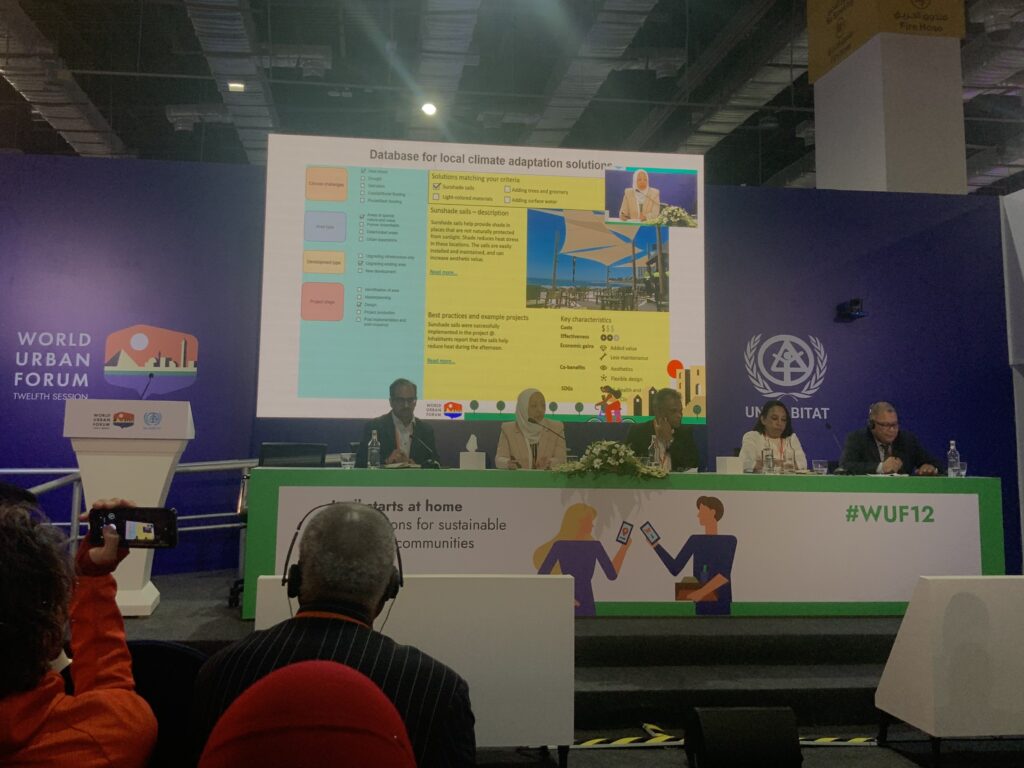
The introduction read:
Cities worldwide are increasingly recognized as pivotal players in tackling climate change through transformative actions for sustainable urban development. These initiatives aim to both mitigate and adapt to climate impacts, bolster urban resilience, and foster inclusive, sustainable growth. Particularly in the global south, cities are taking proactive steps to combat climate change, becoming significant agents of change. They are implementing innovative strategies that not only reduce greenhouse gas emissions but also promote poverty alleviation, job creation, and overall sustainable development.
See also: Building Resilient Cities: Bridging the Climate Mitigation and Adaptation GapUN-Habitat organised the session in collaboration with the ICLEI Local Governments for Sustainability, South Asia; Swiss Agency for Development and Cooperation (SDC); the National Institute of Urban Affairs (NIUA); the Urban Development Fund of Egypt (UDF); UN-Habitat Morocco; GIZ Egypt; and GIZ Morocco.


